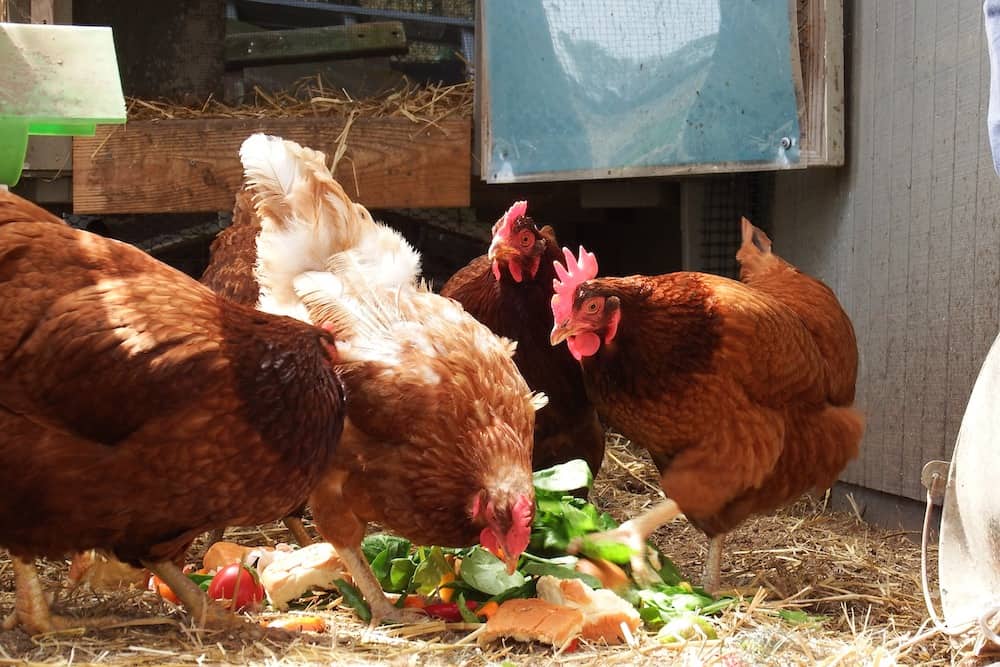Chickens, Info Guides
What Scraps Not to Feed Chickens: Comprehensive Guide
Understanding how to keep chickens healthy is crucial for every backyard chicken keeper. A healthy flock are good egg layers and ensure a joyful and vibrant atmosphere in your yard.
In this blog post, we will guide you through how to keep chickens healthy.
From cleaning the coop for optimal health, natural pest control methods, providing access to fresh grass and vegetation, minimising exposure to harmful chemicals, and creating an overall healthy environment – we cover it all.
Armed with these insights on keeping chickens healthy, you’ll be better equipped as a chicken keeper ensuring that your hens remain in top shape.
Raw Beans
Chickens absolutely love snacking and will eat almost anything you give them. As a pet owner, it is essential you be aware of which foods are suitable for chickens and to protect them from harmful foods.
Uncooked beans, for example, are a big no-no for our feathered friends. Always cook beans thoroughly before feeding them to your chickens – this process destroys the harmful toxins present in the raw form.
However, given the risk involved with improperly prepared beans, many pet owners choose simply not to feed their chickens any kind of bean at all.
What Are The Risks?
Phytohaemagglutinin, a toxin that can be fatal to birds when not cooked properly, is present in raw beans and should therefore be avoided. Small amounts can cause symptoms such as diarrhea, lethargy, and loss of appetite.
Large amounts of phytohaemagglutinin can cause red blood cells to agglomerate, resulting in severe illness or even death if consumed in excess.
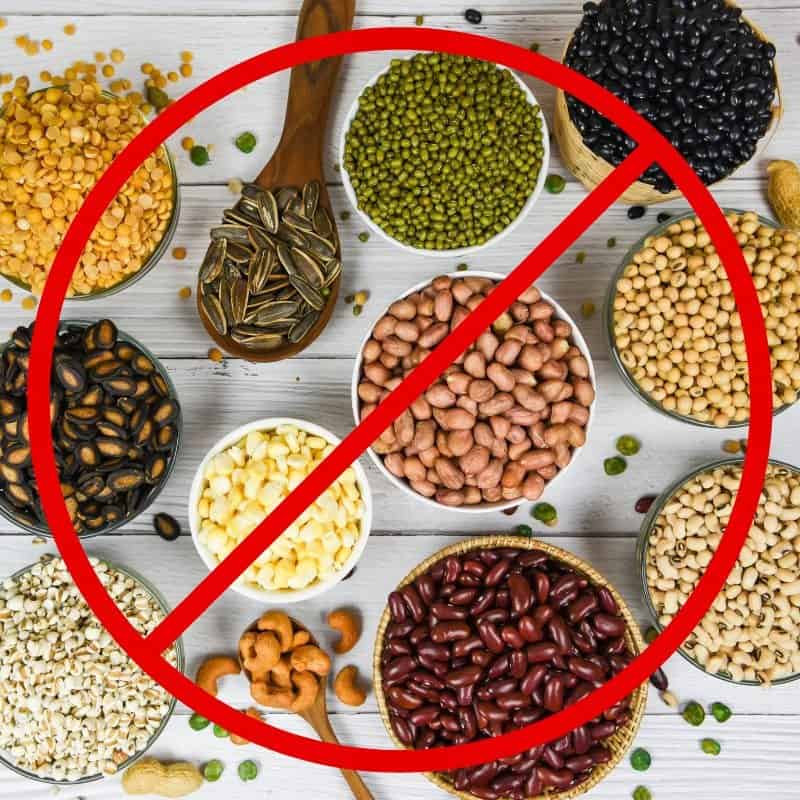
Onion and Garlic
Onions and garlic may be tasty for us, but they’re not suitable for chickens to eat. You should avoid feeding your chickens anything from the allium family, which includes onion, garlic, leeks, chives, and shallots.
Some customers tell us they are able to feed their flock small amounts of cooked onion. However, we do not recommend this as it is not worth the risk.
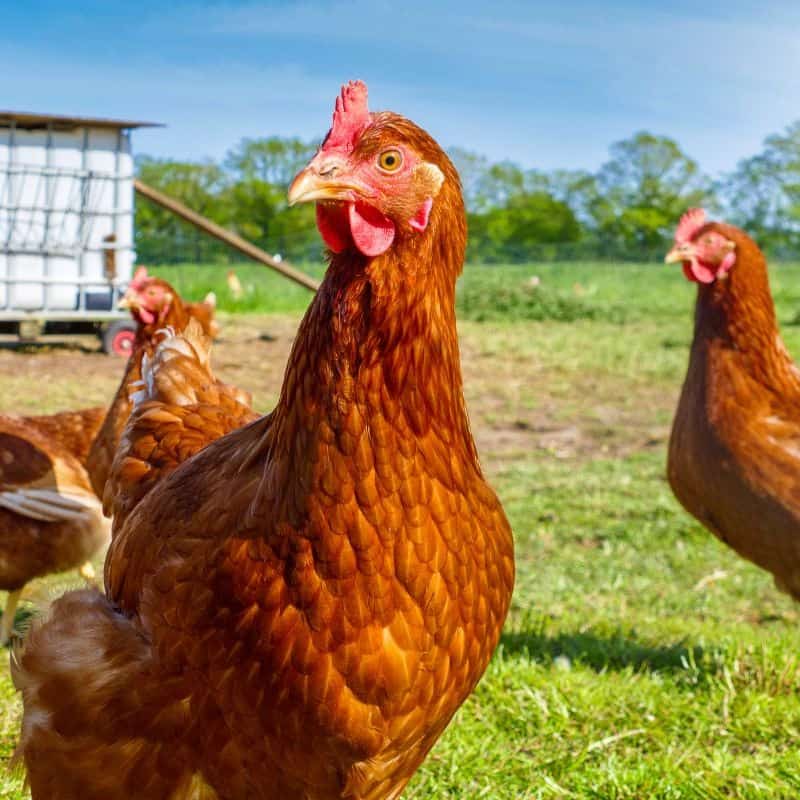
What Are The Risks?
Onions and garlic contain harmful sulfur compounds which lead to onion toxicity in chickens. While small amounts of onions may not be immediately harmful, they contain compounds that can be toxic to chickens over time.
Symptoms of onion toxicity include digestive upset, lethargy, anemia, pale comb and wattles, decreased egg production, and even sudden death. So keep these potent veggies out of their reach.
And if the health risks do not convince you, consider this: chickens that eat strong-flavoured foods like onions or garlic may produce eggs with an off-putting flavour. Yuck!
Dairy
We do not recommend feeding your flock dairy scraps, including milk, cheese and yogurt. Chickens tend to be lactose intolerant, which means their bodies have difficulty digesting lactose, a sugar present in milk and dairy products.
While chickens can consume small pieces of dairy products without immediate harm, it’s generally not recommended to include dairy products as a significant part of their diet.
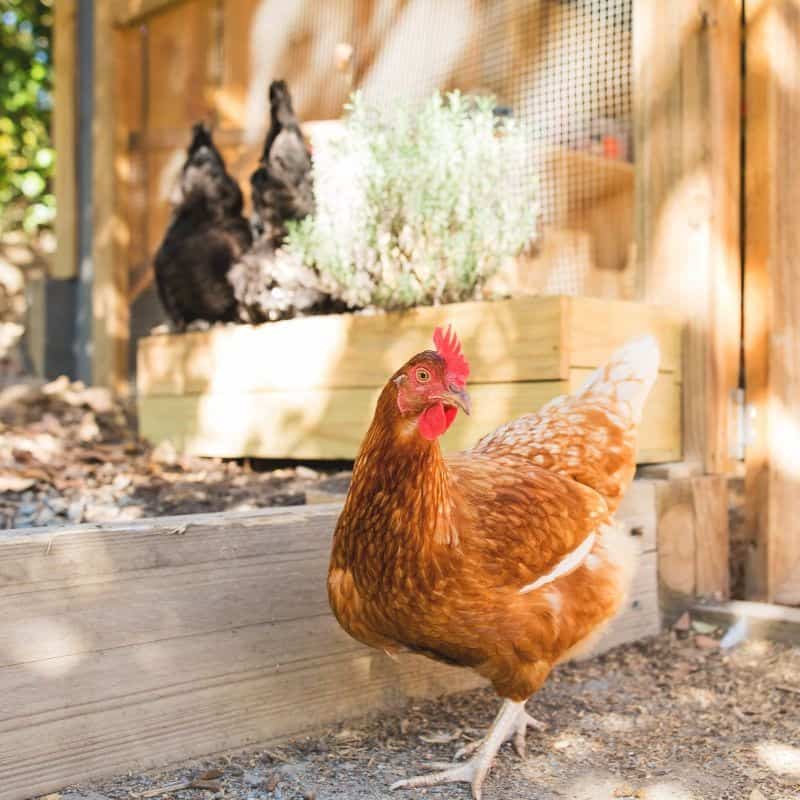
What Are The Risks?
While dairy products can be high in protein and calcium, they are not suitable for chickens to consume. Eating dairy can lead to digestive issues, bloating, and even death in severe cases.
When searching for ways to supplement your chickens’ diet, try mealworms for protein and oyster shells for calcium.
Processed Foods
Chickens and processed foods don’t mix. Avoid the temptation to share human treats with your flock! Junk food to avoid includes potato chips, chocolate, lollies, microwave dinners and baked goods. Most of these foods are excessively high in salt, sugar or fats.
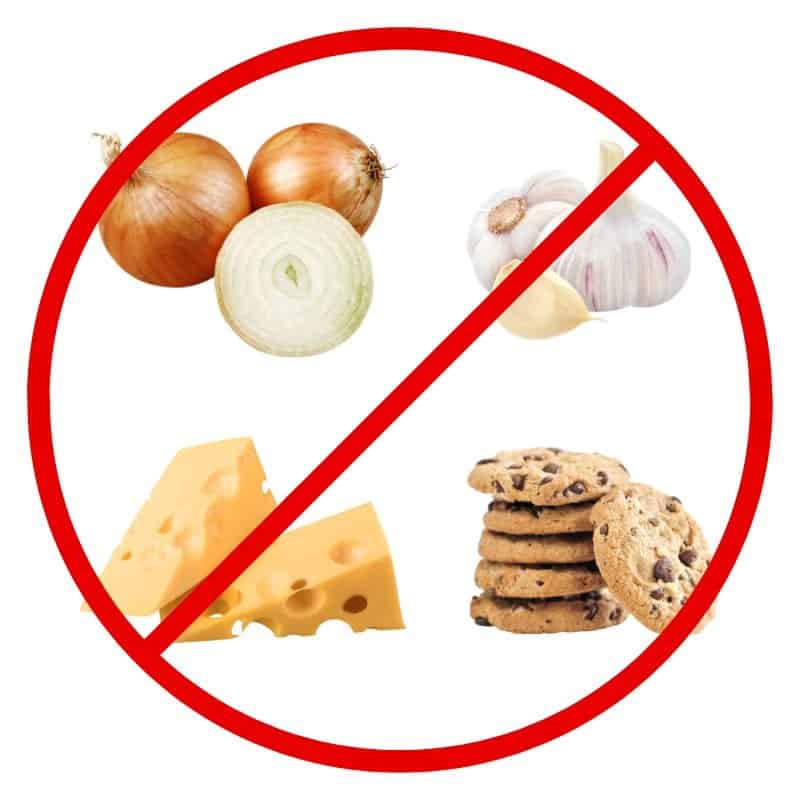
What Are The Risks?
Foods containing high levels of fat, salt or sugar can be hard for chickens to digest, leading to diarrhoea and an upset stomach. Processed foods lack essential nutrients that chickens need for optimal growth and productivity. If your chickens regularly fill up on these unhealthy foods, they may develop nutritional deficiencies.
When consuming processed foods in large amounts, your chickens are at risk of developing obesity which can significantly shorten their lives.
Spoiled Food
It can be tempting to feed your chickens any spoiled, mouldy or expired leftover food as a way to avoid food wastage. However, it is not good for them!
Bacteria and toxins found in spoiled leftover food can cause serious health issues for your feathered friends. Unsure if food is spoiled? Detect spoiled food by checking the:
- Smell: If your kitchen scraps smell funky, toss them.
- Texture: Mushy veggies and slimy meat are a no-go.
- Mould: Keep an eye out for unusual colours on leftovers.
To avoid feeding spoiled food, give fresh kitchen scraps directly to your chickens instead of storing them. And remember, cooked meals left at room temperature for more than two hours start to spoil due to bacterial growth.
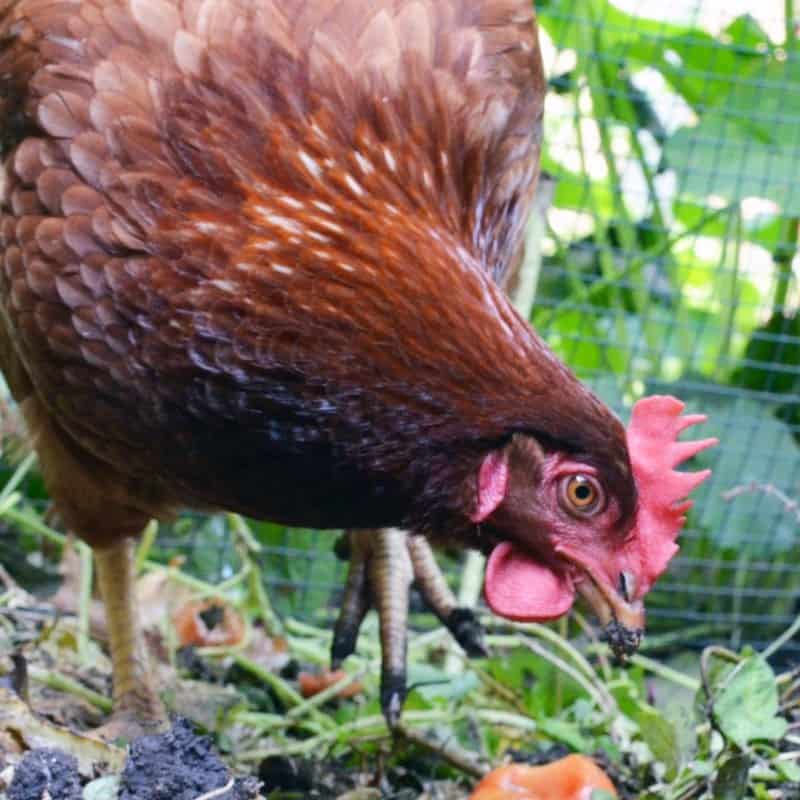
What Are The Risks?
Microbes like bacteria, yeasts and moulds can decompose food nutrients and alter the colour, texture and odour of the food – a sign of spoilage.
Certain types of bacteria can produce harmful heat-resistant toxins. If your chickens consume these, they can live inside their digestive system and cause serious illness or death.
FAQs in Relation to What Scraps Not to Feed Chickens
What Foods Are Toxic For Chickens?
Foods that are toxic to chickens include dried beans, onions, garlic, green potatoes or potato skins, avocado pits and skin, green tomatoes, chocolate, and any spoiled food.
Chickens can eat avocado flesh in very small amounts.
Can I Feed My Chickens Table Scraps?
In moderation, you can feed your chickens table scraps including small pieces of cooked meat, vegetables, and fruits like apples and berries (without seeds). Chickens love corn!
Can Chickens Eat All Food Scraps?
No, some kitchen scraps like onions, garlic cloves, junk food, dairy products etc., are harmful to their health. Avoid feeding chickens raw eggs as it can tempt them to start eating their own eggs, which is a difficult habit to break.
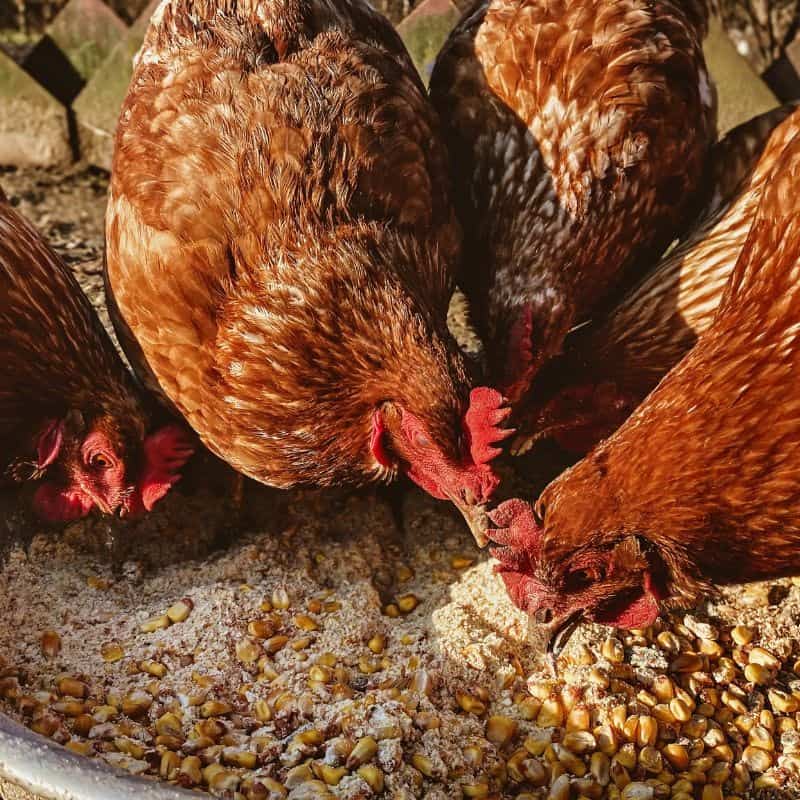
Conclusion
Understanding what scraps not to feed chickens is essential. Chickens tend to eat whatever is in front of them so it is your responsibility, as their owner, to protect them from harmful foods.
Avoid dried beans, onion, garlic, dairy, processed foods, and spoiled food – they can cause digestive issues or be toxic. Instead, treat your chickens to fruits, veggies, cooked eggs, and whole grains.
A balanced diet will keep your chickens healthy and happy in their Somerzby chicken coop. For more information on what you should feed your flock, check out our helpful blog ‘What are the different types of chicken feed?‘




